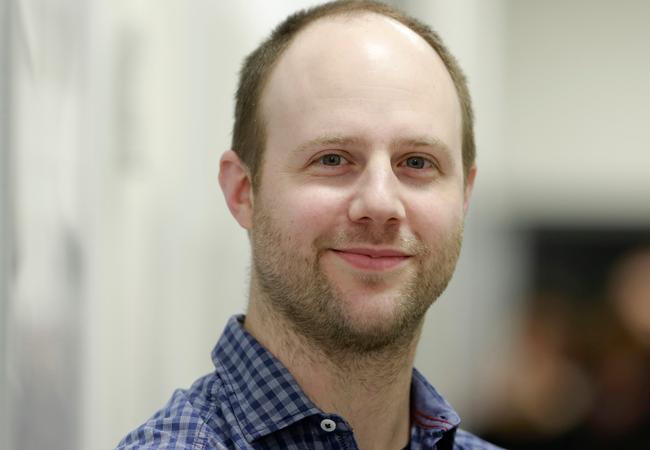
Misfolded proteins cause many diseases including neurodegenerative conditions and cancer. To protect themselves from protein misfolding, cells have developed sophisticated quality control mechanisms. How these function in the case of protein misfolding in mitochondria is now the subject of research currently being conducted by Dr. Christian Münch at the Institute of Biochemistry II of Goethe University Frankfurt. The German Research Foundation is supporting his work with an Emmy Noether grant of up to € 2 million.
The misfolding of single or several cellular proteins is a constant danger. Even just a slight rise in body temperature is sufficient to disrupt the folding balance in cells. If this occurs in mitochondria, the cell’s usual control mechanisms do not come into action because the small organelles, also known as the cell’s “powerhouses”, are separated from the rest of the cell by two membranes. They therefore need their own control mechanisms to safeguard mitochondrial protein folding.
That is why mitochondria, when their proteins fail to fold correctly, activate a stress response which attempts to correct this folding. By activating certain genes in the cell nucleus, they induce the production of proteins that support folding in the mitochondria. “Especially in the case of mammalian cells, little is known about how information about misfolded mitochondrial proteins is relayed to the cell nucleus,” explains Dr. Christian Münch.
The research group, which Münch is currently building up with the help of the funds approved by the German Research Foundation, aims also to investigate how the stress response acts under chronic conditions and how programmed cell death is triggered if protein folding cannot be reinstated. The researchers hope in this way to discover which role these processes play in diseases and whether they can be modified for therapeutic purposes.
Dr. Münch studied biochemistry in Tübingen and Munich and completed his doctoral degree at Cambridge University, England, in 2011. He then spent several years as a researcher at Harvard Medical School in the USA. He has been a group leader at the Institute of Biochemistry II of the Faculty of Medical Science at Goethe University Frankfurt since December 2016.
In the framework of the Emmy Noether Programme, the German Research Foundation sponsors outstanding junior researchers so that they can lead their own independent junior research group and qualify for a university teaching career. The programme also especially endeavours to recruit excellent early career researchers back from abroad.
Source: Press Release 14/11/17








